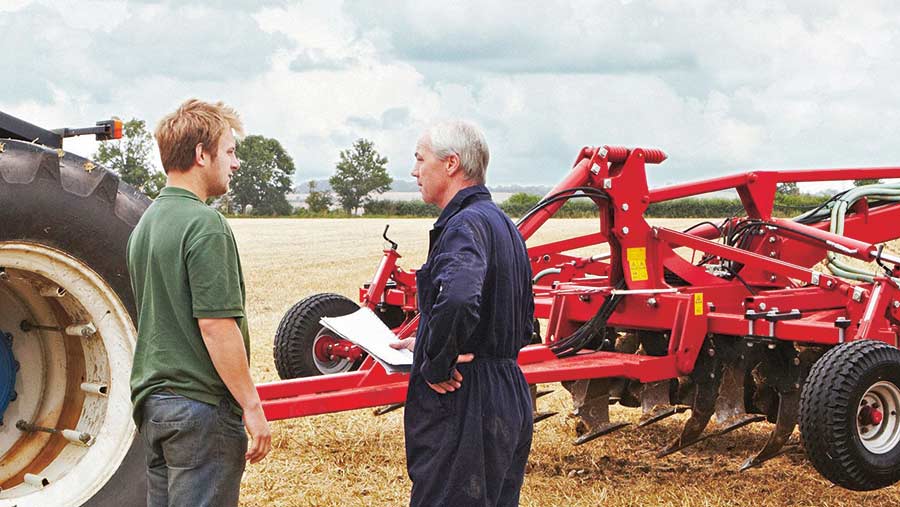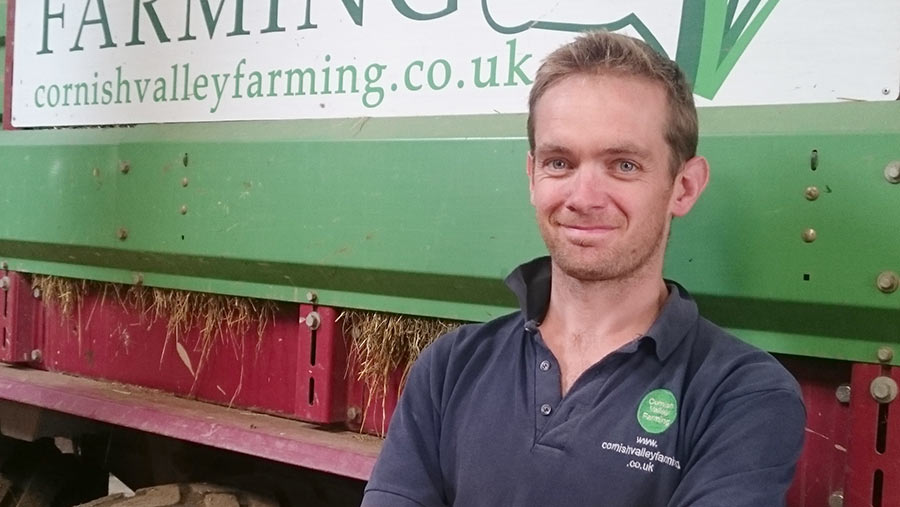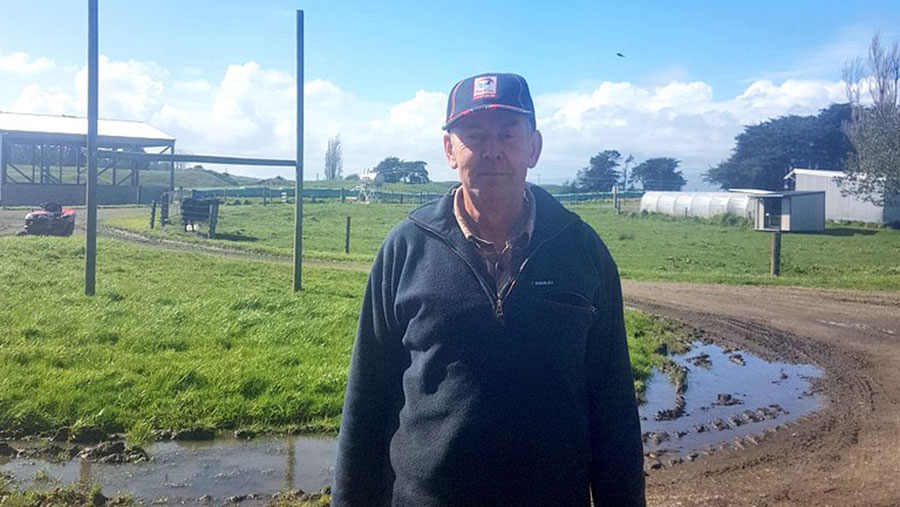Share farming: How it works and why it could reshape farming
 © REX Shutterstock
© REX Shutterstock If a quarter of farmers in England aged over 65 entered into a share farming agreement we could have nearly 8,000 new entrants working the land, according to Christopher Price, CLA director of policy and advice.
“Unfortunately the problem with farming today is that you’re either in or out,” he says. “Share farming provides a unique middle ground where new entrants can learn on the job while an ageing farmer can ease into retirement.”
Mr Price points out that this allows for a transition, to pass down intrinsic knowledge across farming generations at a time when a heightened reliance on technology risks losing this expertise altogether.
See also: Business clinic: Share farming v contract farming
“We need to dispel the assumption that you either contract farm or start a farm business tenancy; there is another option,” he says.
“Tenancies often require an individual who is the finished product, and can be expensive, with big upfront costs, while contract farming doesn’t offer the progression that share farming does, as operators can incrementally increase their stake in the business. Neither does it allow potentially lucrative profit averaging.”
What is share farming?
A share farming arrangement is a coming together of two parties in a mutually beneficial agreement to farm a certain area of land while remaining as two separate businesses.
An owner and an operator devise the arrangement around a ratio, which establishes how much money each party is responsible for putting in and is entitled to take out.
The ratio is worked out by assessing the annual value of all of the assets and expertise each person is bringing to the table.
It can grow incrementally over the course of several years as operators reinvest their profits, growing their share of the business.
Distinct from contract farming, share arrangements make no guaranteed payments, regardless of business performance. This means both parties can thrive in the good times and share loss in poorer times.
Who is responsible for what? |
||
|
Owner |
Operator or farmer |
|
|
Expertise |
Yes | Yes |
|
Farm buildings |
Yes | |
|
Farmland |
Yes | |
|
Field and mobile machinery |
Yes | |
|
Fixed equipment |
Yes | |
|
Labour |
Yes | |
|
Long term care of the land |
Yes | |
|
Major maintenance of buildings |
Yes | |
|
Part of the working capital in the form of a share of actual inputs |
Yes | Yes |
|
Share in the ownership of livestock |
Yes | Yes |
How do agreements work?
Both parties contribute their respective expertise and focus on their individual strengths, while working towards the mutual benefit of business.
The owner does not receive rent for the land and the operator is not paid for their time. Both parties submit their own VAT returns.
Each business remains legally separate, dividing earnings and costs by the ratio decided upon in the agreement. They rely upon each other’s mutual success and therefore hold a stake in what their partner is doing.
Benefits of a share farming arrangement
Farmer/operator
- Opportunity for new entrants to enter the industry
- Less upfront capital needed than for tenancy or purchase
- Can build up share in business by reinvesting profits
- Can create economies of scale that reduce fixed costs
- New entrants can learn from owner’s experience
- Operate a separate business without any cross-liability
Owner
- Farm can be worked without parting with possession
- No shared liability between the two parties
- Can create larger land areas, increasing buying and selling power
- In good years, profits increase
- In a good position to benefit from Agricultural Property Relief (APR)
- Profits can be averaged beween two years for tax benefits
- Advantage can be taken of election for herd basis taxation
- Owner retains a regular input in managerial decisions
- Can use structure to plan for succession
- Phasing period can help owner leave the industry gradually
This, according to John Henderson, who helped to write the book on share farming back in 1984, is one of the most beneficial byproducts of share farming.
“There’s a danger of a knowledge gap emerging in UK agriculture. The young want to come through, but often can’t, and the old need to get out, but often won’t,” he says.
“Share farming for me has been a way of passing on the knowledge I’ve picked up over the years and giving enthusiastic young farmers the chance to have a go and learn from their own mistakes instead of waiting for parents to slowly pass down farms.
Share farming doesn’t profess to be a one-size-fits-all solution, and Mr Henderson laughs at some of the people he met during his months spent on the road promoting share farming in the 1980s and 1990s.
“Some people were simply hopeless communicators. You don’t stand a chance in a share farming agreement if you don’t get on and share a mutual vision with the owner/operator,” he says.
“You need to meet every week with each other and discuss the really tough issues if you’re going to make a success of it.”
The reasons why share farming never took off after its initial introduction over 30 years ago have never been entirely clear, but the prominence of contract farming has probably stifled its development.
A few arrangements gone wrong could have tarnished its reputation, but Gary Markham, director of farms & estates at Churchgates Accountants, cites different reasons for share farming not taking off.
“There’s a great deal of added administration involved with share farming – splitting invoices with suppliers can be a real nuisance,” he says.
“This shouldn’t deter anybody from giving share farming a go. We could learn a lot from the New Zealand attitude of being more entrepreneurial and not being scared of deviating from tradition.
“The most common misconception of share farming is that farmers believe they must be a loser if they have to resort to it. They’re wrong; if you give a share agreement a go you are a leader – an innovator.”
Rob Halliday – share farmer
Farms 100 beef cattle near Liskeard, Cornwall

Rob Halliday
Why share farming?
In 2009, I got out of contract heifer rearing, and an opportunity came up to enter into a share farming arrangement with my parents.
They did not want the arrangement to involve succession so we have a strictly business relationship in which I provide all the labour, machinery and originally half the cattle. Our income is split 50:50.
I retain the autonomy to run the business, but my parents are protected as we remain two separate business entities. If I want to make an investment I have to make a reasonable case to them.
Our herd has grown in the past nine years – we’ve gone from 22 animals to 100, split across two units, and have plans to get to 150. We own 50% of 50 animals, 75% of a further 25 and the remaining 25 are all our own.
We were short of start-up capital to begin with and share farming has given us somewhere to start from and get going in the industry.
Advice for the UK
I would advise people looking at share farming to ensure they get a thorough written agremeent without any grey areas and make sure there is equivalence of aims and objectives with your partner.
Brian Kilsby – farm owner
Poroutawhao, Wellington, New Zealand

Brian Kilsby
Why share farming?
My family have been in mixed farming for over 120 years. We decided to convert to a 100% dairy farm 20 years ago but my personal experience was limited – I was a part-time milker for a week in the 1980s. We just didn’t have the skills to do the job well.
We felt it was better financially to employ a share milker who brought skills to the table that were ideal to get us efficient quickly.
Our first two share milkers both stayed for nine years, taking on the farm conversion and then developing the farm in their own unique ways. If a young couple has some good ideas to increase income, be it for themselves or the farm as a whole, we do not stand in their way.
Advice for the UK
We always use a trusted farm advisor to help us compile a shortlist from applicants that can number up to 50. We narrow this down to three or four and visit their farms as well as invite them to come to ours and have a look around so they know how things are run.
We ask neighbours, contractors and even use social media as a selection tool. Facebook can be very revealing.
Share milking is a viable way to maintain your farm asset and gives the farm owner an option of taking a step back, in the knowledge the farm is being run to the best of its potential, as it’s also in the share milker’s best interest.
Richard McIntyre – share milker
Owns 450 cows in Poroutawhao, Wellington, New Zealand

Richard McIntyre
Why share farming?
We wanted to be our own bosses, implement the type of system we want to, sharing a mutual goal with the owner.
I don’t think I’d still be in farming without this arrangement. I need the ability to progress and work towards owning a farm of my own.
I have expanded my calf-rearing business through raising 500 additional calves a year. We pay the farm owners NZD$50/calf to cover our use of facilities and have also leased 180ha of land, which we use to raise replacements, grow crops and fatten some of the calves we rear, most of which are sold at 100kg.
Advice for the UK
Seeing eye to eye with your business partner is crucial. You’ve got to be honest in your style of farming and find out exactly what they want from you. Ask key questions, such as what happens if there’s a shortage of grazing – will the owner dry off the cows, use supplements or just cut feeds?
Tracy Henderson – share milker
Farms a herd of 800 cows in Awarua, Invercargill City, New Zealand
Why share farming?
Getting your hands on a share farming arrangement in New Zealand is notoriously difficult, especially the first time. We would have travelled anywhere in the South Island if the arrangement was right.
Share farming has given us the means to grow our herd from 320, when we left contract milking, to around 800. Thanks to our owner’s hands-off approach we are free to implement our vision for the farm and continue towards farm ownership. There’s no other tangible way we could do this, even if there is a long road ahead.
Advice for the UK
Do your homework. A share farming agreement is a big deal and you need to know exactly what you’re getting into. We spoke to the people who farmed before us as well as the neighbours to give ourselves the best picture of what to expect.
Granted, it’s a risk, but you’ve got to be willing to give it a go and try new things. We really see no downsides to our agreement.
